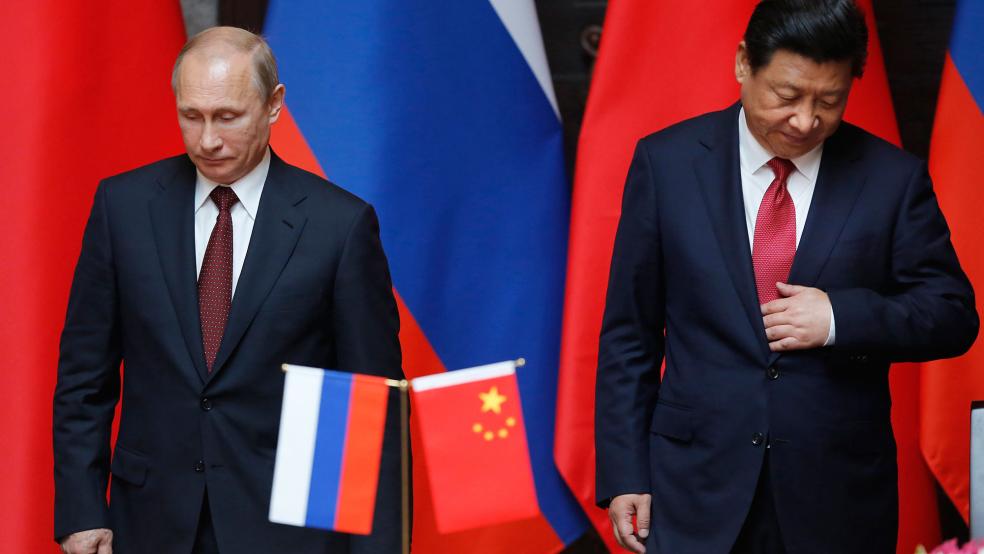Russia’s long-term plan to keep its economy growing was to turn away from a stagnant energy market in Europe and grow ties with China, a country that will soon have the largest economy in the world. The cornerstone of this plan was an energy deal that would allow Gazprom, Russia’s state-owned energy giant, to pump billions of cubic tons of natural gas to China.
The deal was supposed to be signed today. Reuters reports that the deal has fallen apart.
Related: Putin’s Rise Highlights U.S. Descent from Global Stage
Russian President Vladimir Putin and Chinese President Xi Jinping were unable to agree on the price of the gas, an issue that had been in contention since the start of negotiations. The failure to secure the deal comes as a surprise to many, given that Russian media had been reporting that the deal would be finalized today.
With the crisis in Ukraine continuing, China pushed the price of the gas lower and lower. Energy experts expected Russia to accept the lower prices in order to diversify exports.
Both sides said negotiations would continue, and Putin tried to put a positive spin on the failure to reach an agreement.
“I’m glad to be informed that the two sides have made significant progress in the price negotiation of the east route of the natural gas project,” Putin said after the meeting according to Xinhua, the Chinese state news agency.
Related: Four Reasons Why Putin Pulled Back His Troops
But this news puts Russia’s Asia strategy in serious doubt. The Russia-China strategic partnership had been in the works since Russian President Boris Yeltsin and Chinese President Jiang Zemin announced it in 1996. But other than joint military exercises, the relationship has grown stale. This energy deal was supposed to change that.
It also has serious implications for the Ukraine crisis. One of the reasons Russia sought the partnership with China was to wean itself off of European energy money. If it diversified exports, the relationship with Europe became less important and Europe would lose leverage over Moscow. This could free Russia up to act across Eastern Europe as it has in Ukraine.
Proof of this can be seen in today’s market. Russian stocks (other than Gazprom) rallied on the news that the deal failed, as it’s now seen as less likely that Putin would intervene in Ukraine’s May 25 elections, or dispute their aftermath.
The lack of an agreement also emboldens Obama’s strategy to freeze out Russia through economic sanctions. If Europe were to sanction Russia’s energy sector - an unlikely but possible outcome - it could squeeze the life out of the Russian economy.
Related: Russia Can Lose Territory, Too. It Should Worry
For now, any plans to intervene in Ukraine or any other country in Eastern Europe are on hold. Until Moscow and Beijing can come to an agreement on price, Russia is forced to rely on Europe to keep its coffers full.
Many have suggested that the Ukraine standoff has been an international game of chess. If that’s the case, China might have just checkmated Russia.
Top Reads from The Fiscal Times





